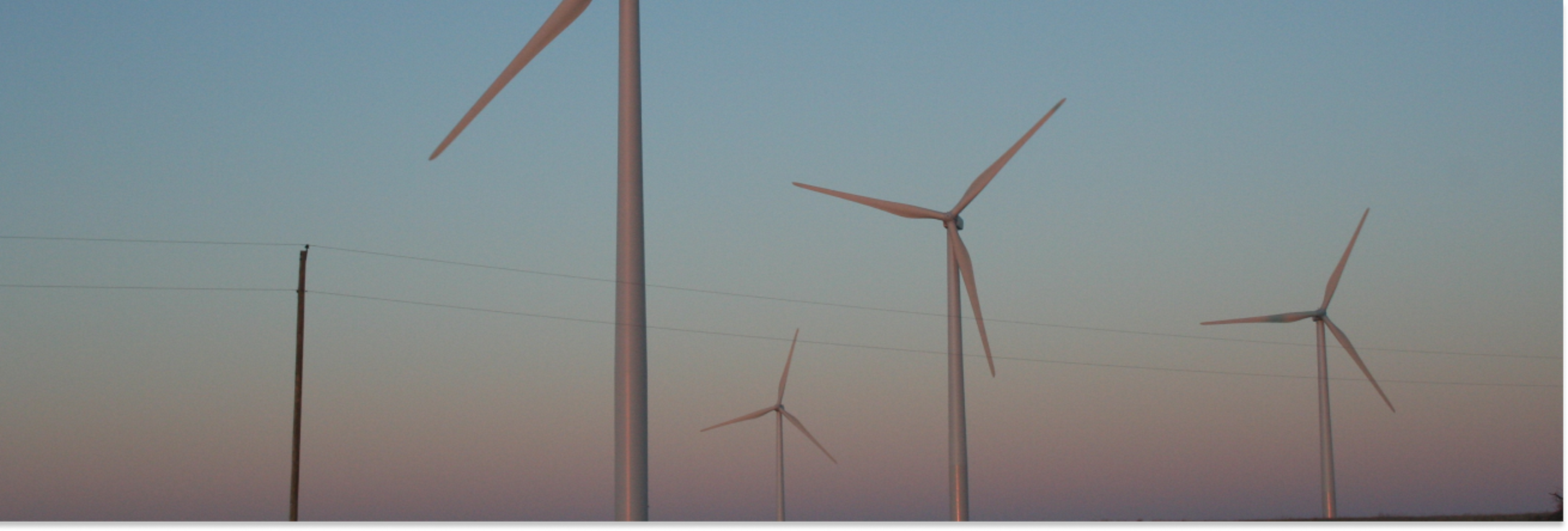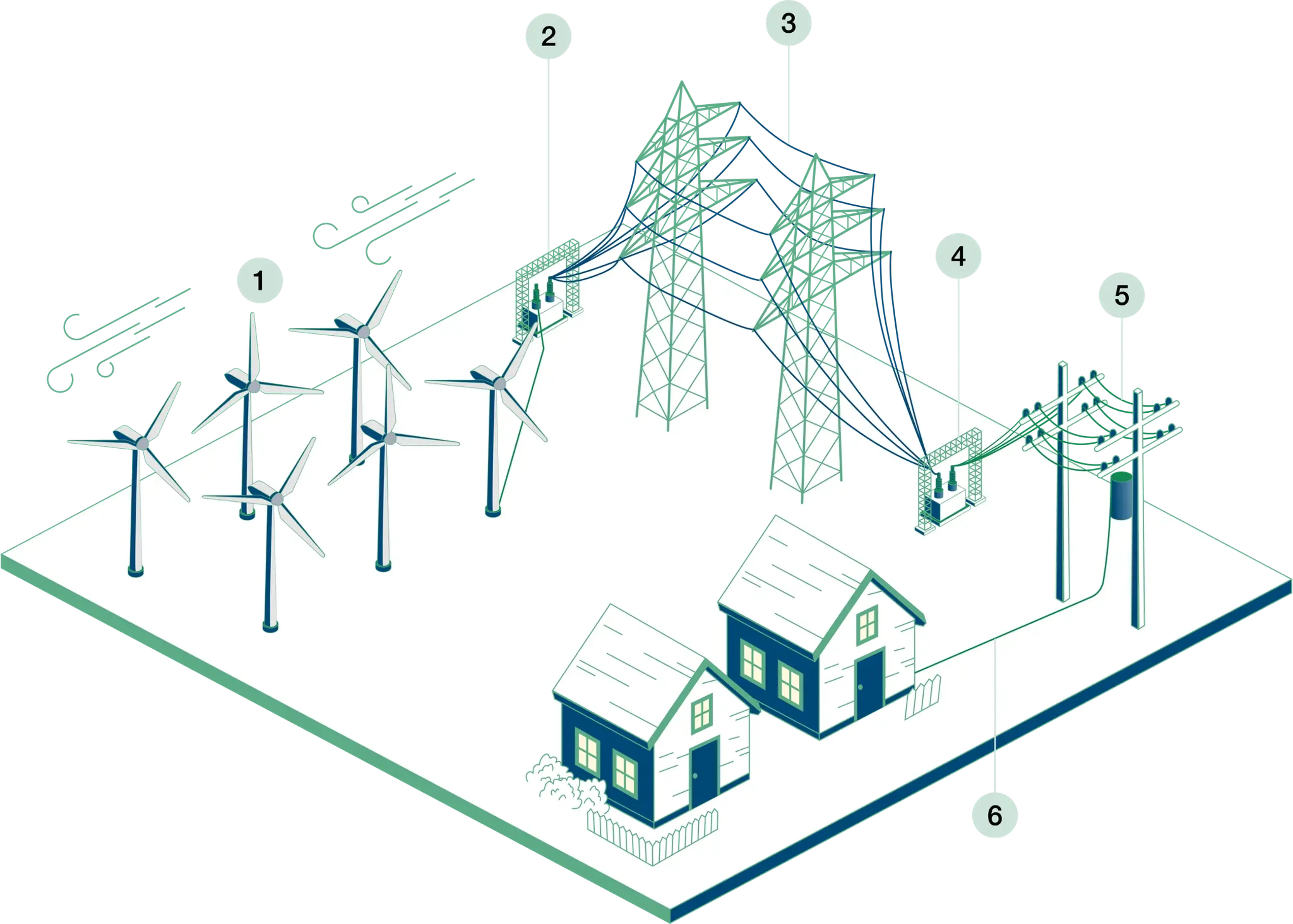
What you should know about wind energy
What you should know about wind energy
Land-based wind energy is currently the largest source of clean power generation in the United States. Our wind projects help generate economic stability through local business-sustaining job creation, landowner payments and tax revenues, all while producing cleaner, more reliable and affordable homegrown energy.
How Wind Energy Works
- 1 Turbines spin to generate electricity. Turbines can adjust depending on wind direction.
- 2 Transformer increases voltage of electricity.
- 3 Electricity travels through transmission lines.
- 4 Transformer decreases voltage of electricity.
- 5 Electricity travels through collection lines.
- 6 Electricity is delivered to customers.

Benefits of Wind Energy
Wind powers communities with a limitless, free and non-polluting renewable energy resource that consumes virtually no water. Learn more about the benefits of wind energy.
Job Creation
Community Investment
Supports Energy Independence
Protecting Family Farmland
Abundance of Wind Resource
Emission-Free Energy
Public Health Benefits
Compatibility with Farming
Conserving Water Resources
Wind in Iowa
Iowa is a national leader in wind energy generation. While Iowa ranks 2nd in the nation for installed capacity to date, wind makes up over 60% of the electricity generated in the state. However, Iowa produces more electricity from wind than any other source and electricity bills have remained well below the national average due to this abundance of wind energy.
Learn more

Explore Invenergy's wind portfolio
Invenergy has developed more than 19 gigawatts of wind energy across more than 118 projects, enough to power 6.4 million homes. Find out more about our successful track record in wind energy.


